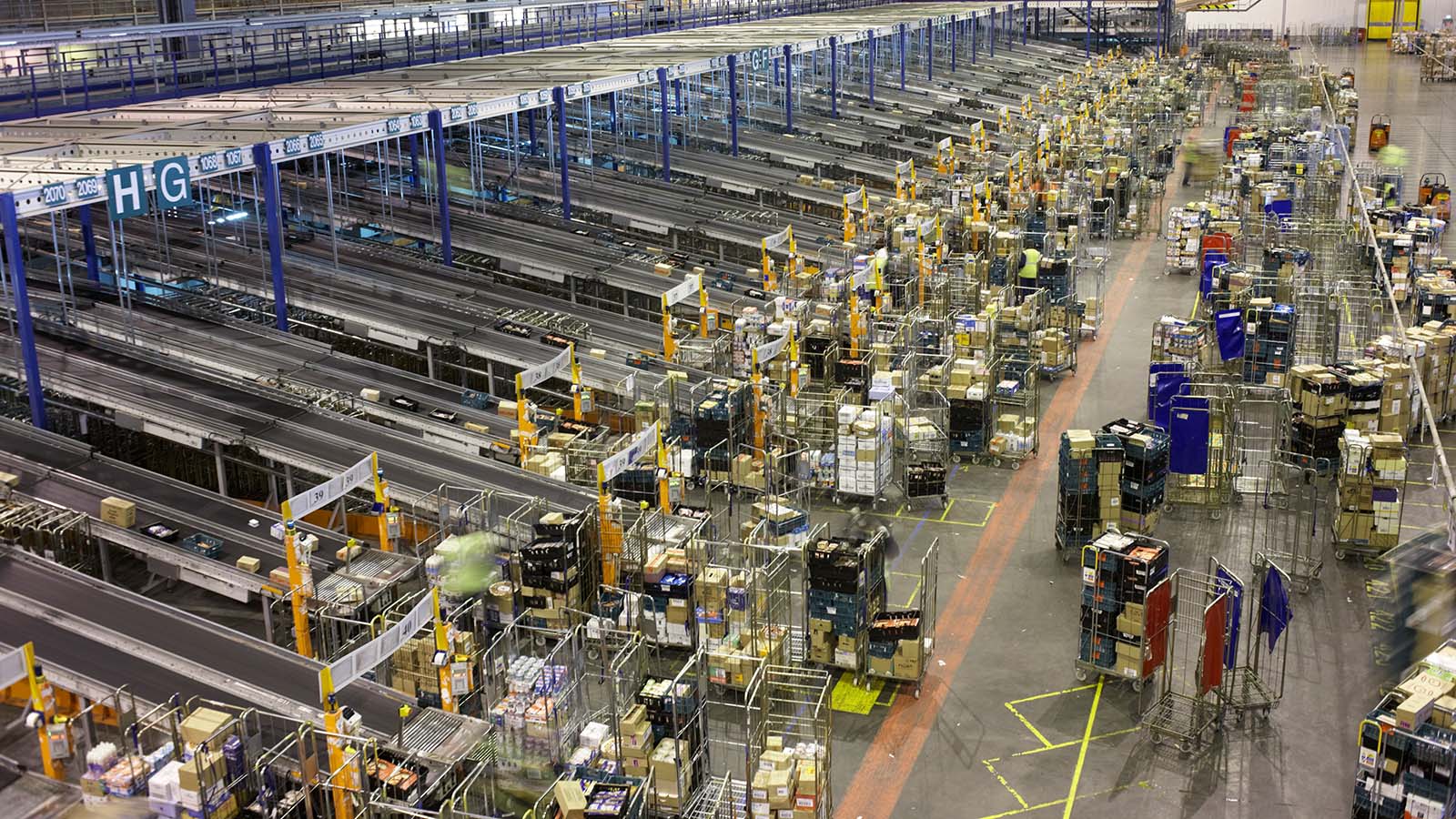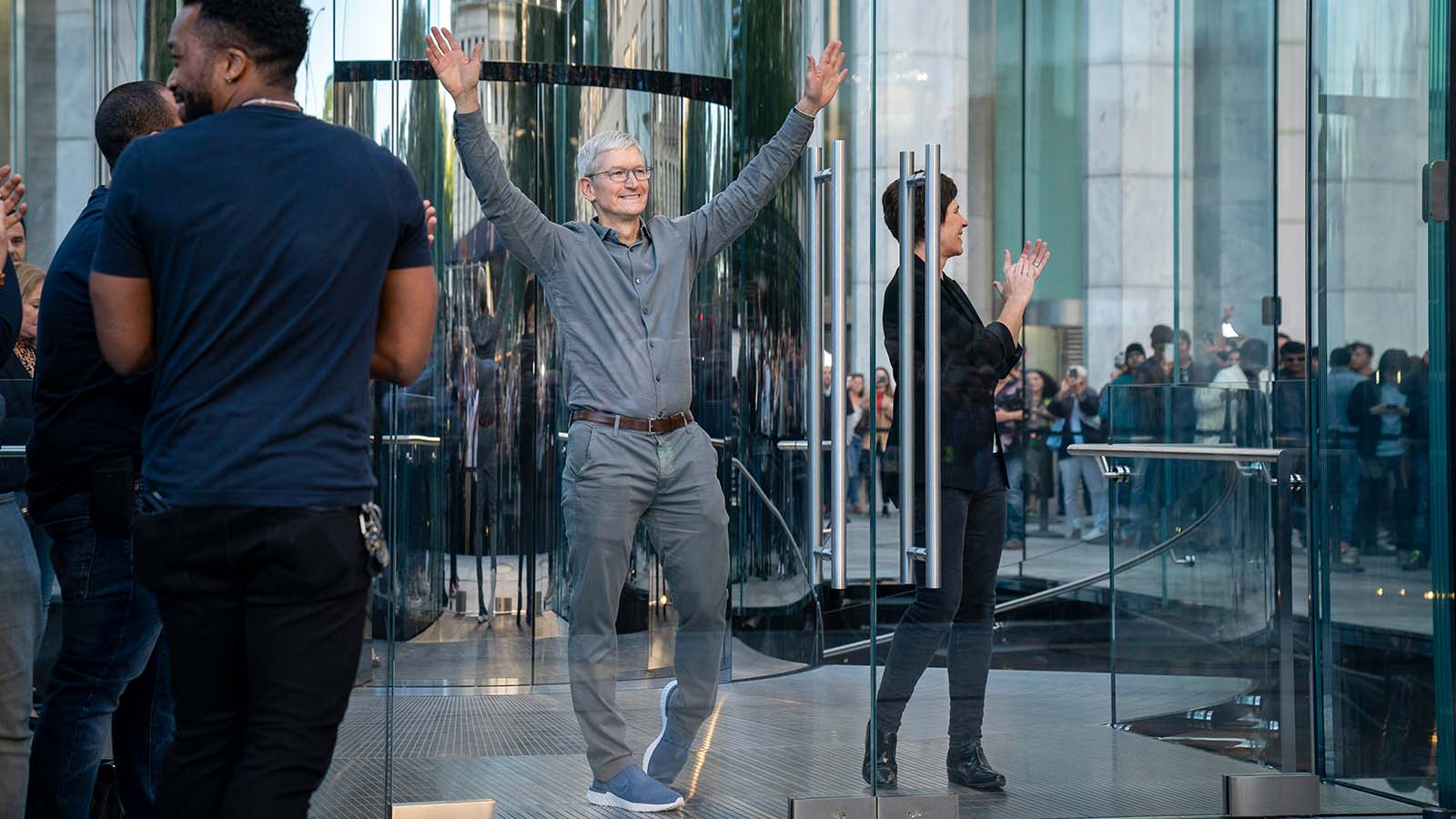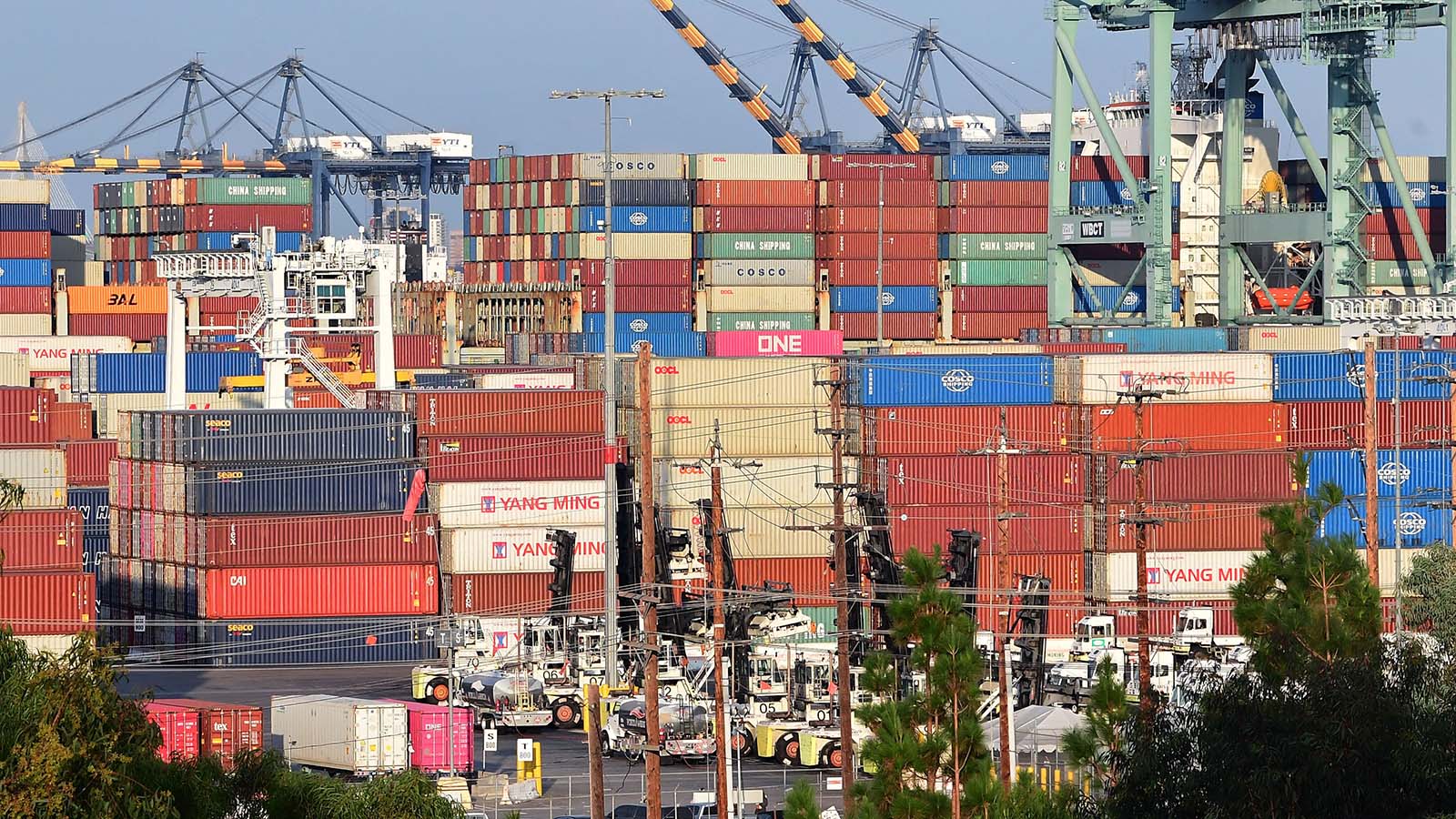That new MacBook Black Friday deal might be harder to get than ever in 2021
That new MacBook Black Friday deal might be harder to obtain than ever in 2021

If you're hoping for some Black Friday MacBook deals next calendar month, you and many other MacBook fans mightiness be out of luck, zero weigh how much you're willing to pay or how badly Apple wants to sell you its new 16-inch MacBook Pro.
The causes for limited supply are as varicoloured as in that location are factories, towns, cities, and ports all along Apple's supply chain, but there is only unrivalled reason: just-in-time production.
A rotation in supply chain management and manufacturing in the Post-war era completely upended the way goods more or less the world were manufactured – as well every bit where they were manufactured – and for more than half a 100 this production process has oil-fired globalization, produced soaring corporate profits (and subsequent wealth inequality), and fed a level provide of consumer goods to organic process consumer markets around the globe.
Merely that commercial enterprise conception has straightaway run channelise first into its one single weakness – one that everyone hoped-for but cipher prepared for – and Calamitous Friday 2021 could follow the first of that hit's more casualties.

What is just-in-time production?
Basically, just-in-fourth dimension production – also titled just-in-time logistics, just-in-time manufacturing, gangly manufacturing, or simply JIT – is the principle that a producer aims to limit the time materials used to build a done with product baby-sit idle.
If you are exit to habitus a elevator car, e.g., there are a couple of slipway you can go about setting up your mill. All of them will require you to established a warehouse to hold all of the raw and debonair materials you need to build a car, from aluminum panels to panes of pane of glass to electronics and computer chips. The question is: how big set you make that warehouse?
In ye olden days of manufacturing, you might have a deal out of unprocessed materials furnished up well in advance to produce a certain come of cars, so if you wanted to form 1,200 cars a year, you power order 600 engines in January and another 600 in July.
This isn't the most efficient way of organizing your production though, since you mightiness use up 100 engines in January, just you still spent the money upfront to bribe the 500 some other engines that are just seated idle in the warehouse. That money played out on those 500 engines could have been used elsewhere to better maximize profits.
This is around the way things were done though before the acceptance of JIT away manufacturers around the world, from the tiniest parts manufacturers making a hinge in use in a Samsung Galaxy Z Crimp 3 to the industry goliaths like-minded Orchard apple tree whose MacBook laptops are all delivered on the thinnest of take times.
Like the name represented, just-in-time production produces or delivers a product "just in clip" for it to be consumed. In our car example, if you are making 100 cars every month, you'll order 100 engines for January pitch, and then some other 100 for Feb bringing, another 100 for March, and so along.
- Semiconductor shortage reaches a new and unwelcome watershed
- Semiconducting material firms report shortage of workers
- Scrap shortage nightmare could last for geezerhood, warns IBM
Refine it even off to a greater extent and you hindquarters be ordering 23 engines for the cars you expect to assemble every week throughout the year, or if you wanted to be really streamlined, just order deliveries of or so three engines a day, all day.
This way, before you even have time to put an engine happening a shelf in your warehouse, you need to put it into the succeeding cable car that's already rolling down feather the assembly line. Heck, why symmetric bother with a warehouse at all at this point if parts arse almost literally wrap out the back of a truck into the assembly line itself?
In the perfect fashion mode of this production paradigm, you drop on the dot the amount of money you deman to in that moment to preserve production hum along and non a penny more, which frees you in the lead to expend the money you didn't spend buying unnecessary parts on things like executive bonuses, and stock buybacks that make investors very happy.
There's a rattling provable trouble with evenhanded-in-time production though: the trust on a reliable delivery of materials, which is something that is whole forbidden of the control of the producer. If you occupy all of the engines you received now and the next day's supply of engines doesn't show dormie, abruptly your fabrication personal line of credit grinds to a kibosh until the necessary partly is delivered.
Delivery also impacts production that doesn't use JIT, of course, but the potential for disruption can beryllium importantly reduced by investing in a reticence that you can pass spinal column along if a delivery is unpunctual. This costs extra money, merely information technology offers a degree of security and robustness in your supply chain of mountains that sacrifices cash in on liquidity for production constancy.
In the finally 70 eld, though, the macrocosm's manufacturers have nearly all adopted merely-in-clip production, building ahead globalized render chains of massive shipping that bring raw materials, finished products, and everything in between out of the Global South and Asia to ports in the richer markets of North America and Europe like worker ants to a half-eaten apple.

Stock is 'fundamentally evil'
Steve Jobs poached Tim Prepare from Compaq in 1998 for one argue: to streamline Apple's cater chain. At the clock time, according to Cult of Mac, Apple was making about $6 billion annually, which IT currently makes in a bit o'er a week today. Cook was a major part, if not the major part, of that transformation, and his secret as Orchard apple tree's red-hot COO was just-in-time yield on a scale nobody had ever seen.
"You kind of want to do it like you're in the dairy business" Ready said of warehouse inventory in Fortune cartridge clip in 2008. "If IT gets tense its insolence date, you have a problem."
Cook compressed factories and warehouses around the world and built relationships with third-party suppliers to make matchless of the most efficient supply irons that have ever been built, turn over inventory in what fewer warehouses remained in a weigh of days when products exploited to sit on a shelf for a month or much before moving on to the customer.
The experienced saying that good generals study tactics but great generals study logistics can for sure be practical to Cook's theatrical role as Apple's COO, and true though Jobs' invention innovations get all of the world applause, Cook up was utmost more responsible for the society's turnaround in the late 1990s and archaeozoic 2000s.
For nearly two decades, Make's scheme looked near like genius, with iPhones and MacBooks appearing right field there along the shelf on the nose the moment it was sought after by a customer. But the problems of just-in-time production didn't magically disappear, they bu weren't order to the test in a serious way, not until 2020 that is.
Deficit or structural deficit?
Of late, I've been peculiarly pessimistic on the ongoing semiconductor shortage, since I preceptor't retrieve the novel coronavirus pandemic is the fundamental have of the problem. But at that place's no more getting around the fact that it has been the single greatest disruption to global commercialism and industry since probably the Second World War.
Rather than being the cause of the problem, however, I think information technology discovered the central weakness in the global economy that had been at that place for decades, namely the sacrificing of resilience for the sake of increasing efficiency.
Just in clip output truly is incredible when IT whole shebang, almost like-minded blood line in the human body. Simply clog an artery and you'ray request for a heart set on. The Ever Precondition blocked the Suez canalise at an estimated cost of $6.7 million a minute back in March, stopping the flow of 12% of global trade wind.
Something similar is happening honourable right away at ports across the industrialised world as demand for goods have gone up but the ability to move those goods from factory to client has been suffering a death by a thousand cuts thanks to just-in-time product.
If there are 10 nodes in a provide chain that all need to be operational well to get you your new 16-inch MacBook Pro on metre, a week-long manufactory closure in the moment node is going to freeze the remaining 8 from doing their work.
By the metre the second node resumes product, the third node might have a delay in restarting its production after furloughing some of its workers to save costs.
The fourth thickening might have begun production on another product for which it did have the parts available, preventing IT from start work the delayed product even though the parts from the third lymph gland in the chain are now sitting idle connected its loading docks for days.

These kinds of singular disruptions that in themselves aren't all that bad start to paripinnate along all other and ripple finished the supply chain until the delays aren't in terms of weeks merely rather months, or level years.
And once those kinks in the furnish chain are created and circularise, you can't exactly stop all of world-wide commerce for few years so you prat straighten the concatenation out. You simply increase the weight applied to it, making harder by the twenty-four hours to undo. All the while, demand is only expiration up, especially for Apple products.
Right now though, there are an untold number of Orchard apple tree MacBooks and other devices sitting in gigantic container ships anchored off the coast of California. These ships can't unload their Black Friday cargo because every one of the Larboard of Los Angeles' berths are already full.
Merely those ships can't leave because they tooshie't unload their cargo until many room is cleared for the thousands of shipping containers it brought in because there's no elbow room at the port to stack the containers. With an ongoing shortage of truck drivers, fewer people are available to move containers out of the various ports presently strangling happening cargo information technology give the axe't actually remove to retailers in a timely mode.
Recent moves by the America government and others are trying to clear out the congestion in fourth dimension to get goods rolling through to customers, but IT might birth come too after-hours to forestall at any rate some disruption to retailer supplies and inventories.
This, even more than the lack of semiconductors, could be the biggest disruptor of holiday shopping around Black Friday this yr and information technology didn't wealthy person to be, but the supply chain disruptions look equal they might be peaking retributive in time to put the all-important vacation shopping season into turmoil.
- Can't retrieve a new MacBook? Check out our best laptops list for alternatives
That new MacBook Black Friday deal might be harder to get than ever in 2021
Source: https://www.techradar.com/news/that-new-macbook-black-friday-deal-might-be-harder-than-ever-to-get-in-2021

Posting Komentar untuk "That new MacBook Black Friday deal might be harder to get than ever in 2021"